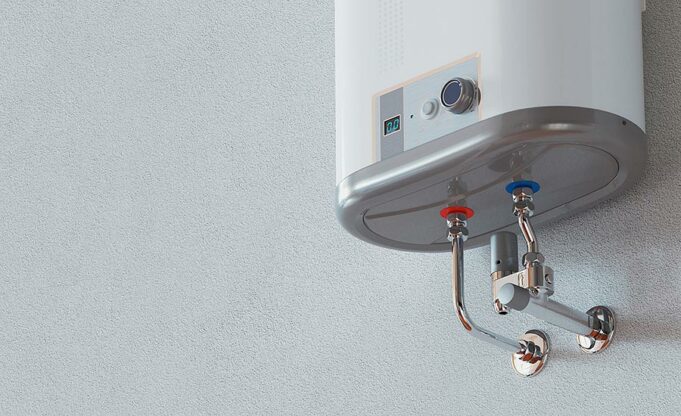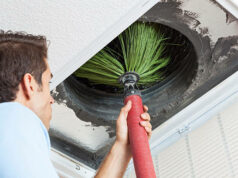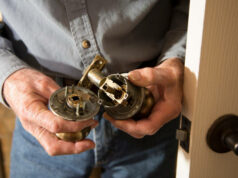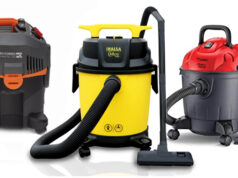If you’re tired of running out of hot water during your showers or constantly fretting over rising energy bills, a tankless water heater might be the solution you’ve been looking for. Unlike traditional tank-style water heaters, tankless water heaters heat water on demand, providing a continuous supply of hot water while saving energy and space. But, before you rush out to buy one, it’s crucial to determine whether a tankless water heater is the right choice for your home. In this comprehensive guide, we’ll delve into the pros and cons, installation considerations, and factors to consider when deciding if a tankless water heater is right for you. For more in-depth, expert information about tankless water heaters, visit this website.
The Pros of Tankless Water Heaters
1. Endless Hot Water
One of the most significant advantages of tankless water heaters is that they provide endless hot water. Unlike traditional tanks that have a limited supply of hot water, tankless models heat water as you need it, ensuring you never run out of hot water, no matter how long your shower or bath.
2. Energy Efficiency
Tankless water heaters are highly energy-efficient. They only heat water when you need it, which means they don’t waste energy keeping a large tank of water hot all the time. This efficiency can result in significant savings on your energy bills over time.
3. Space-Saving Design
Tankless water heaters are compact and wall-mounted, freeing up valuable space in your utility room or basement. Their small size makes them an ideal choice for homes with limited space.
4. Longer Lifespan
Compared to traditional water heaters, tankless models tend to have a longer lifespan. While a tank-style heater might last around 10-15 years, tankless units can last up to 20 years or more with proper maintenance.
5. Reduced Risk of Water Damage
Traditional water heaters are prone to leaks and can cause significant water damage if they fail. Tankless water heaters, on the other hand, have a lower risk of leaking since they don’t store large volumes of water.
The Cons of Tankless Water Heaters
1. Higher Initial Cost
One of the main drawbacks of tankless water heaters is their higher initial cost compared to traditional tanks. Tankless units require specialized installation, which can be more expensive upfront.
2. Limited Flow Rate
While tankless water heaters provide endless hot water, their flow rate is not unlimited. If you have a large household with multiple simultaneous hot water needs (e.g., showers, laundry, and dishwashing), you may need multiple tankless units or a larger, more expensive model to meet your demands.
3. Installation Challenges
Installing a tankless water heater can be more complex than replacing a traditional tank. You may need to upgrade your electrical or gas systems to accommodate the higher demands of a tankless unit. This can add to the installation cost and time.
4. Cold Weather Performance
In extremely cold climates, tankless water heaters may struggle to provide hot water efficiently. The incoming water temperature can be significantly colder during the winter, requiring the unit to work harder to heat it to your desired temperature.
5. Maintenance Requirements
Tankless water heaters require regular maintenance to keep them functioning correctly. Neglecting maintenance can lead to decreased efficiency and potentially costly repairs.
Is a Tankless Water Heater Right for You?
Now that we’ve examined the pros and cons of tankless water heaters, let’s consider some crucial factors to determine if this type of water heater is suitable for your home.
1. Hot Water Demand
The size of your household and your hot water usage patterns are essential factors to consider. If you have a large family with high hot water demands, a tankless water heater may be a good fit, but you may need a larger unit or multiple units to meet the demand.
2. Available Space
Consider the available space in your home. If you have limited space or want to free up room in your utility area, a tankless water heater’s compact design might be appealing.
3. Budget
Determine your budget for both the initial purchase and installation. While tankless water heaters can save you money on energy bills over time, the upfront cost can be higher. Compare the long-term savings to the initial investment to decide if it aligns with your budget.
4. Climate
Consider your climate and the incoming water temperature. Tankless water heaters are more efficient in warmer climates, where the incoming water temperature is higher. In colder regions, you may need a more powerful unit to achieve the desired hot water flow rate.
5. Installation Requirements
Evaluate your home‘s infrastructure. Installing a tankless water heater may require modifications to your electrical or gas systems. Get an estimate for the installation cost and ensure it fits within your budget.
6. Maintenance Commitment
Are you willing to commit to regular maintenance? Tankless water heaters need periodic descaling and flushing to maintain their efficiency. If you’re not prepared for this maintenance, a traditional tank might be a better choice.
Choosing the Right Tankless Water Heater
If you’ve decided that a tankless water heater is the right choice for your home, the next step is selecting the right model. Here are some key considerations to help you make an informed decision:
1. Fuel Type
Tankless water heaters are available in electric, natural gas, and propane models. Your choice of fuel type depends on your home’s existing infrastructure and your preferences. Electric tankless units are typically easier to install and have lower upfront costs, but they may have higher operating costs in the long run. Gas-powered units, on the other hand, are more energy-efficient and suitable for larger households with higher hot water demands.
2. Flow Rate
The flow rate, measured in gallons per minute (GPM), determines how much hot water the unit can provide at a given time. Calculate your hot water needs by considering the number of fixtures and appliances that will be using hot water simultaneously. Select a tankless water heater with a flow rate that can meet your peak demand.
3. Temperature Rise
The temperature rise is the difference between the incoming cold water temperature and the desired hot water temperature. In colder climates, you’ll need a tankless unit with a higher temperature rise to achieve the same hot water temperature. Make sure the unit you choose can handle the temperature rise required for your location.
4. Energy Efficiency
Check the energy efficiency rating of the tankless water heater. Look for models with a high Energy Factor (EF) rating, as they are more energy-efficient and will save you more on your utility bills over time. Energy Star-certified models are a good indicator of energy efficiency.
5. Sizing
Proper sizing is crucial to ensure your tankless water heater can meet your hot water demands. Undersized units will result in inadequate hot water supply, while oversized units can lead to unnecessary energy consumption. Consult with a professional installer or use sizing calculators provided by manufacturers to determine the right size for your home.
6. Brand and Warranty
Choose a reputable brand with a track record of reliability and customer support. Additionally, pay attention to the warranty offered by the manufacturer. A longer warranty period can provide peace of mind and indicate the manufacturer’s confidence in their product’s durability.
7. Installation
Hiring a qualified professional for the installation is essential to ensure your tankless water heater functions correctly and safely. Improper installation can lead to performance issues and safety hazards. Obtain quotes from multiple installers and choose one with experience in installing tankless units.
By carefully considering these factors and conducting thorough research, you can choose the right tankless water heater that aligns with your specific needs and preferences. Remember that the initial investment in a high-quality tankless water heater can pay off in the long run through energy savings and reliable hot water supply.
Conclusion
In conclusion, a tankless water heater can be an excellent choice for many homeowners, offering endless hot water, energy efficiency, and a longer lifespan. However, it’s not the right fit for everyone due to its higher upfront cost, installation requirements, and potential limitations in cold climates.
Before making a decision, assess your hot water needs, available space, budget, climate, installation requirements, and maintenance commitment. If a tankless water heater aligns with your lifestyle and preferences, it could be a wise investment that provides continuous hot water and energy savings for years to come. But if it doesn’t fit your circumstances, a traditional tank-style water heater may still be a reliable and cost-effective choice for your home.


















